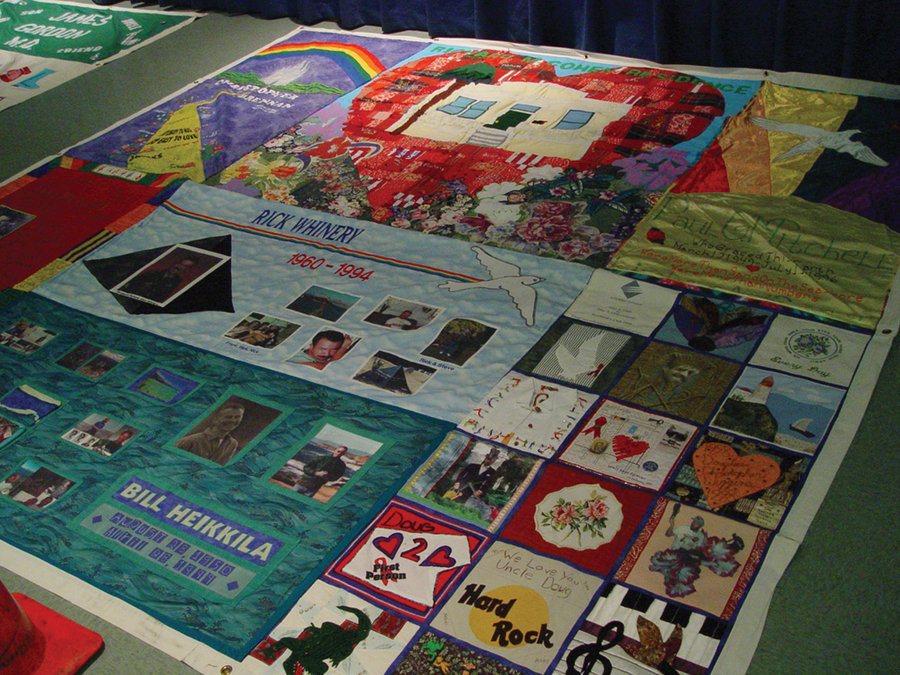In 1984, Father Gus Vinajeras held his 37-year-old brother’s hand as he was dying from AIDS. His brother pleaded, “Don’t let the sun go down on me.” Vinajeras has made it his mission to honor his brother’s wish.
He founded the HIV Ministry in 2006 at St. Matthew’s Lutheran church in Union City in order to “spread the light” of knowledge which can lead to prevention, and hopefully, a cure.
On Saturday, Dec. 3, in honor of World AIDS Day two days earlier, Vinajeras arranged a community tribute to awareness and health in collaboration with North Hudson Community Action Corporation, Jersey City Medical Center, Palisades Medical Center, the Puerto Rican Family Institute, and Mayor Brian Stack at Union City’s Jose Marti Freshman Academy.
Statistics
Statistics show that one in every five people with HIV/AIDS in N.J. is Latino, and that one out of every 184 Latinos in N.J. carries the virus or disease. Hudson County has the highest percentage of Latino residents, and also the highest number of Latinos living with HIV/AIDS.
Union City has the fifth largest number of Latinos with HIV/AIDS in the state. 35 percent were exposed through injected drug use, 33 percent through heterosexual sex, and 20 percent through male homosexual sex.
“The nature of the suffering should not affect the degree of support we give to each other.” –Gus Vinajeras
____________
Despite rapid medical advancement and increased knowledge about the disease since it was first “discovered” in 1969, “Latino communities still suffer from false and outdated notions of the disease because they don’t have proper access to education, treatment, or health insurance,” Lacorta said.
Event
On Saturday, the North Jersey Chapter of the AIDS Memorial “Names Project” displayed two quilts that commemorated local lost loved ones made by surviving family and friends. Two Jersey City Medical Center mobile medical vans provided free rapid HIV testing with 15-minute results, depending on whether locals received counseling on prevention or an immediate referral.
Free sexually transmitted disease, cholesterol, glucose, glaucoma, blood pressure, and pulse oximetry screenings were offered inside the auditorium.
Judith Sanchez, who works with Vinajeras to promote AIDS and sexual health awareness at St. Matthew’s, said that in particular, the Latino population has little access to screenings and preventative care.
“It makes us vulnerable,” she said.
Perhaps mirroring the cultural avoidance of the notion of HIV and AIDS, the turnout at the event was slim.
Alongside Union City Commissioners Lucio Fernandez and Tilo Rivas, Lacorta emphasized the importance of educating the Latino community about the prevention of HIV, AIDS, and other sexually transmitted diseases, particularly because of the link between lack of knowledge and how quickly the illnesses may spread.
The path of most resistance
Vinajeras was a maverick twice-over in his congregation and his community: first, when he openly welcomed gay and lesbian couples into the church in 2004, and second, when he started his HIV ministry in 2006.
“There was no other Latino church that would tackle this issue,” he said. “Tradition tends not to go well with information.” But because of his brother, and because of the statistics that indicate his congregation as especially vulnerable to sexually transmitted diseases, he felt it was his responsibility.
The reaction was not positive at first. The rumors began running rampant as to the reason Vinajeras might be so determined to speak openly about such “taboo” subjects. Was he gay? Was he HIV positive?
“It’s not their business,” Vinajeras said simply. As for why he said nothing rather than deny both rumors, he believes that either way he would continue the negative stigma.
“In this church, if one person suffers, everyone suffers,” Vinajeras said. “The nature of the suffering should not affect the degree of support we give to each other.”
In an educational power-point presentation he created, a picture of the world appears with the words “HIV/AIDS” scrawled across it, and then it slowly disappears. This is the future Vinajeras hopes for, he says – a future that depends on the community’s ability to get past its outdated taboos and stigmas and work together for both prevention and cure.
For more information on HIV and AIDS in N.J., visit www.state.nj.us/health, email aids@doh.state.nj.us, or call (609) 984-5874.
Gennarose Pope may be reached at gpope@hudsonreporter.com
